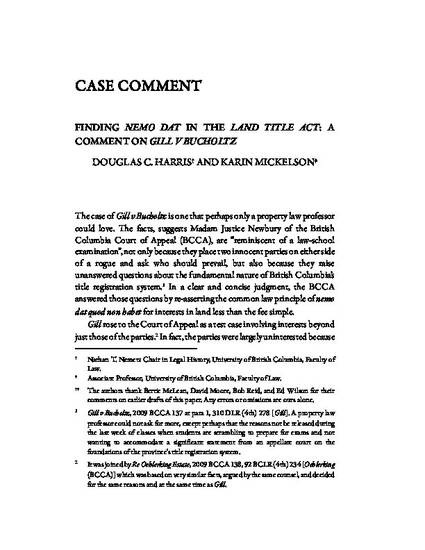
- British Columbia; Land Title Act; Property; Title Registration; Torrens system; Indefeasible title; Mortgages; Risk; Title Insurance
This comment reviews the decision of the British Columbia Court of Appeal in Gill v. Bucholtz and explores the implications for the allocation of risk in the province’s title registration system. The case involved a rogue who forged the transfer of a fee simple and registered that transfer. The person on title, also a party to the fraud, then transferred two mortgages to bona fide purchasers. The purchasers of these charges held title insurance. The question before the court was whether the title registration system’s assurance fund would compensate the original holder of the fee simple interest for the mortgages that, because of fraud, had been registered against the fee simple interest, or whether the title insurers would pay out the value of the mortgages to the mortgagees. The answer turned on whether the mortgagees held valid interests because they had dealt in good faith with the person registered on title, or whether they held invalid interests because the person on title was a party to the fraud. In interpreting British Columbia’s Land Title Act, the court re-asserted the common law principle of nemo dat quod non habet in respect of charges: title holders can only give that which they validly hold. If they hold because of fraud, then they have nothing to give. As a result, the title insurers had to pay out for the invalid mortgages. More generally, the decision confirms that registering charges, defined in the Act as any interest less than the fee simple, does not cure defects in those interests. After Gill, even when the instrument creating the charge is apparently valid because it has been executed by the person registered as the holder of the fee simple interest, the charge will be invalid if the registered title holder is on title because of fraud. The comment concludes by exploring the implications of this decision for the allocation of risk in British Columbia’s title registration system.
